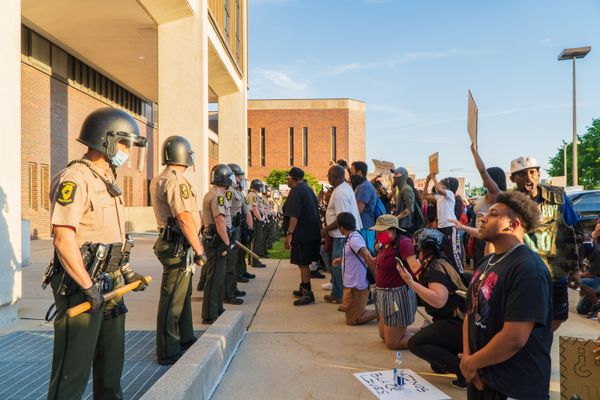Last week, the Supreme Court, in a 5-3 ruling, voted in favor of allowing evidence obtained after an unlawful stop to be used in prosecution, so long as the person was one more than 7.8 millions of Americans with an outstanding warrant for something as minor as a traffic ticket. The decision adds to the tally of cases in which the court has weakened the Fourth Amendment’s defense against illegal searches. The case has been relatively low profile, compared to the other recent decisions involving Obama’s immigration plan, and affirmative action, but deserves the public’s attention given its alarming legal implications.
The case, Utah v. Strieff, involved narcotics detective Douglas Frackrell, who was conducting surveillance on a residence in Salt Lake City based on an anonymous tip about drug activity. The defendant, Edward Strieff, was seen walking out of the residence that Frackrell was observing and was stopped by the officer. Justice Clarence Thomas, who wrote the opinion for the majority admitted “Officer Fackrell’s decision to initiate the stop was mistaken,” but because Strieff had an outstanding arrest warrant for a traffic violation, he argued, the search that came after the illegal stop was lawful. Officer Fackrell arrested Strieff, searched him, and found methamphetamine and drug paraphernalia.
As noted by the Washington Post, the decision was unusual since it was the first time since Justice Antonin Scalia’s death that a consistently liberal judge like Justice Stephen G. Breyer, who was appointed by Bill Clinton, chose to join colleagues on the right to create a conservative majority.
This is the Court’s first exclusionary rule case since Davis v. United States in 2011, and the Court’s decision has significantly undermined the legal power the rule used to hold. The exclusionary rule prohibits the use of evidence collected in an unlawful manner. It was due to this that the Utah State Supreme Court voted unanimously in favor of Strieff and against the use of the evidence attained after his illegal stop.
In Justice Sonia Sotomayor’s sharp and hard-hitting dissent, she articulates the dangerous precedent that this decision sets for courts across the nation.
“This case tells everyone, white and black, guilty and innocent, that an officer can verify your legal status at any time…It says that your body is subject to invasion while courts excuse the violation of your rights. It implies that you are not a citizen of a democracy but the subject of a carceral state, just waiting to be cataloged,” Justice Sotomayor wrote.
Another important thing to point out is that having an outstanding arrest warrant—which is what the Court decided made the evidence found as a result of the search in this case lawful—is pretty common and the majority of them are for very minor offenses. Sotomayor warns that, “this case allows the police to stop you on the street, demand your identification, and check it for outstanding traffic warrants—even if you are doing nothing wrong. If the officer discovers a warrant for a fine you forgot to pay, courts will now excuse his illegal stop and will admit into evidence anything he happens to find by searching you after arresting you on the warrant.”
As Justice Elena Kagan added, this threat is especially troubling to minority communities with lower-income. A disproportionately large number of residents have outstanding warrants for minor infractions in these neighborhoods, and giving this ability to law enforcement enable the social, racial, and economic divisions that exist to remain in perpetuity.
This disregard for the exclusionary rule is worrying, as it is one of the systemic barriers designed to protect the rights of citizens from police overreach. It is an important constitutional principle that deserves to be protected. Without it, we risk materializing into a society that resembles more of a police state than a democracy.





















